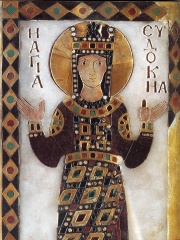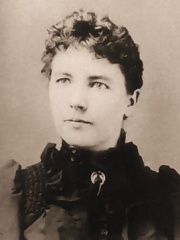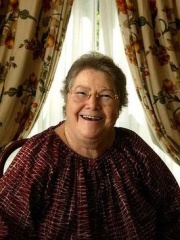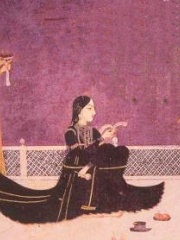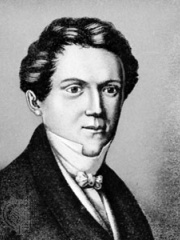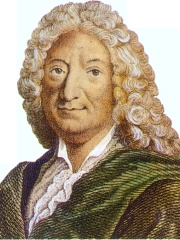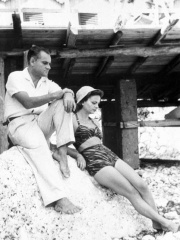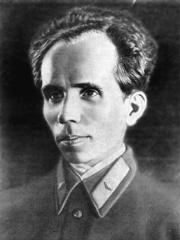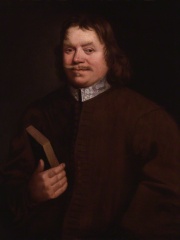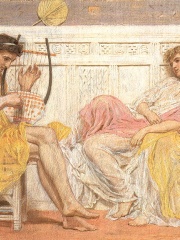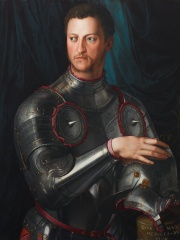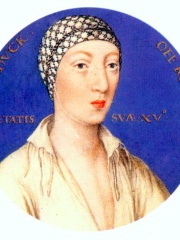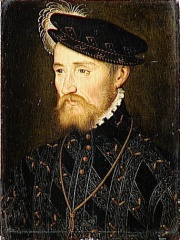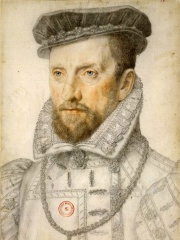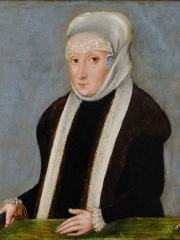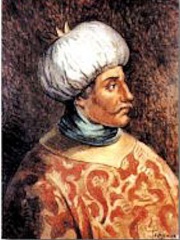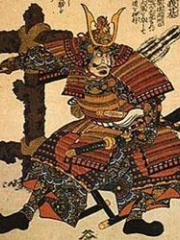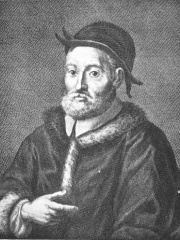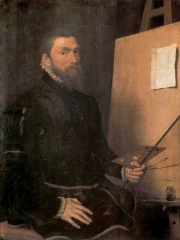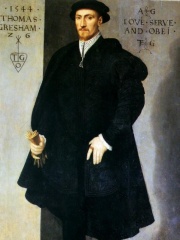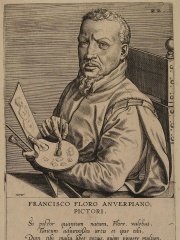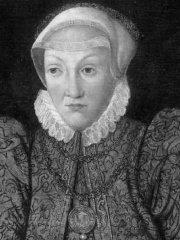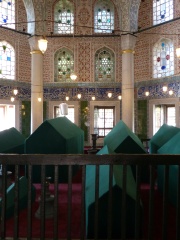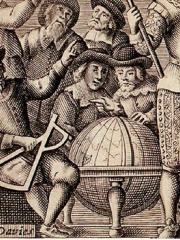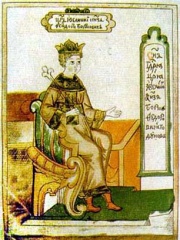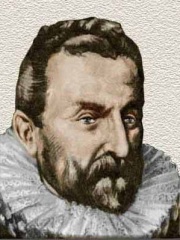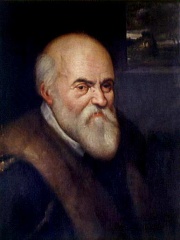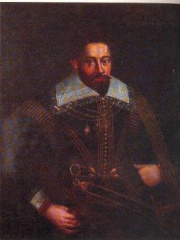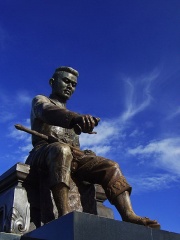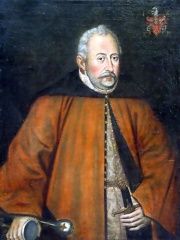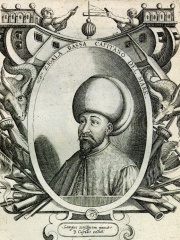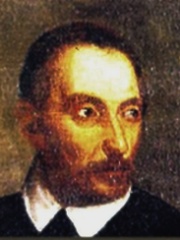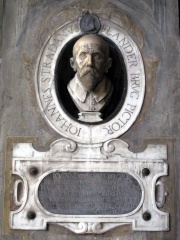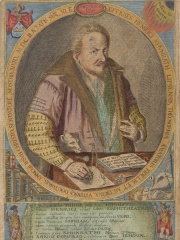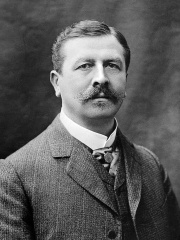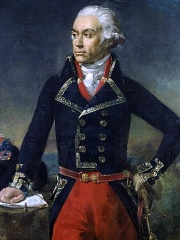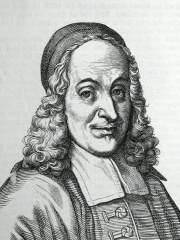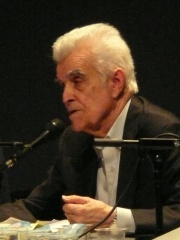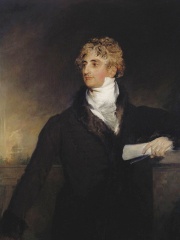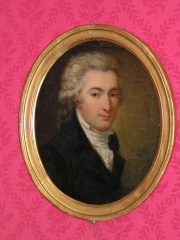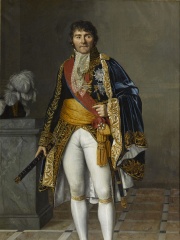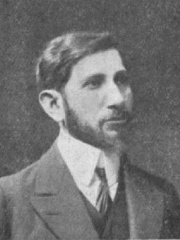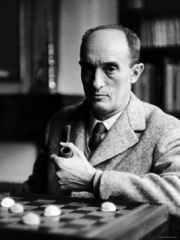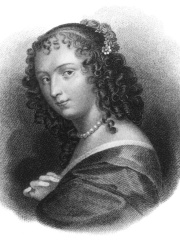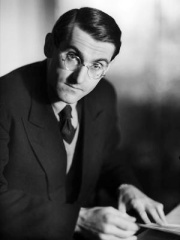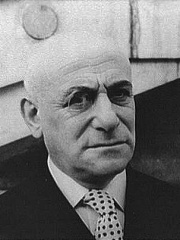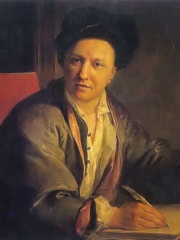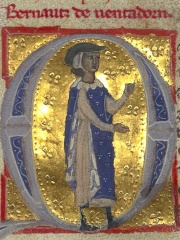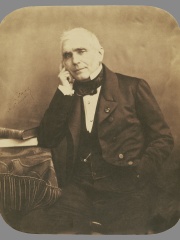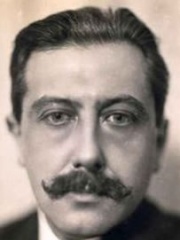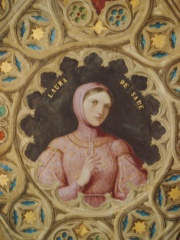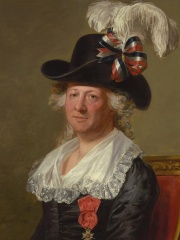Writer
Theodore Beza
1519 - 1605
EN.WIKIPEDIA PAGE VIEWS (PV)
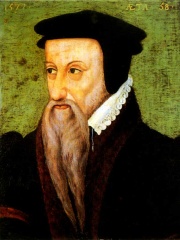
 Theodore Beza
Theodore Beza
His biography is available in 35 different languages on Wikipedia (up from 34 in 2024). Theodore Beza is the 824th most popular writer (down from 785th in 2024), the 981st most popular biography from France (down from 920th in 2019) and the 125th most popular French Writer.
Theodore Beza was a French theologian who served as the last chancellor of the University of Geneva. He was also one of the translators of the Geneva Bible. He is most famous for his work as a theologian and for his translation of the Bible.
Memorability Metrics
Page views of Theodore Beza by language
Among Writers
Among writers, Theodore Beza ranks 824 out of 7,302. Before him are James Jones, Aelia Eudocia, Laura Ingalls Wilder, Colleen McCullough, Zeb-un-Nissa, and Wilhelm Hauff. After him are Alain-René Lesage, Elsa Morante, Nikolai Ostrovsky, Kobayashi Issa, John Bunyan, and Bacchylides.
Most Popular Writers in Wikipedia
Go to all RankingsJames Jones
1921 - 1977
HPI: 69.36
Rank: 818
Aelia Eudocia
401 - 460
HPI: 69.36
Rank: 819
Laura Ingalls Wilder
1867 - 1957
HPI: 69.36
Rank: 820
Colleen McCullough
1937 - 2015
HPI: 69.36
Rank: 821
Zeb-un-Nissa
1638 - 1702
HPI: 69.33
Rank: 822
Wilhelm Hauff
1802 - 1827
HPI: 69.33
Rank: 823
Theodore Beza
1519 - 1605
HPI: 69.33
Rank: 824
Alain-René Lesage
1668 - 1747
HPI: 69.31
Rank: 825
Elsa Morante
1912 - 1985
HPI: 69.30
Rank: 826
Nikolai Ostrovsky
1904 - 1936
HPI: 69.30
Rank: 827
Kobayashi Issa
1763 - 1828
HPI: 69.29
Rank: 828
John Bunyan
1628 - 1688
HPI: 69.29
Rank: 829
Bacchylides
490 BC - 451 BC
HPI: 69.29
Rank: 830
Contemporaries
Among people born in 1519, Theodore Beza ranks 10. Before him are Cosimo I de' Medici, Grand Duke of Tuscany, Henry FitzRoy, 1st Duke of Richmond and Somerset, Francis, Duke of Guise, Gaspard II de Coligny, Isabella Jagiellon, and Occhiali. After him are Imagawa Yoshimoto, Andrea Cesalpino, Antonis Mor, Thomas Gresham, Frans Floris, and Marie of Brandenburg-Kulmbach. Among people deceased in 1605, Theodore Beza ranks 11. Before him are Handan Sultan, John Davis, Feodor II of Russia, Jean Nicot, Ulisse Aldrovandi, and Johann II, Duke of Saxe-Weimar. After him are Naresuan, Jan Zamoyski, Cığalazade Yusuf Sinan Pasha, Orazio Vecchi, Stradanus, and Heinrich Khunrath.
Others Born in 1519
Go to all RankingsCosimo I de' Medici, Grand Duke of Tuscany
POLITICIAN
1519 - 1574
HPI: 78.12
Rank: 4
Henry FitzRoy, 1st Duke of Richmond and Somerset
POLITICIAN
1519 - 1536
HPI: 75.04
Rank: 5
Francis, Duke of Guise
POLITICIAN
1519 - 1563
HPI: 73.43
Rank: 6
Gaspard II de Coligny
POLITICIAN
1519 - 1572
HPI: 73.11
Rank: 7
Isabella Jagiellon
POLITICIAN
1519 - 1559
HPI: 70.21
Rank: 8
Occhiali
POLITICIAN
1519 - 1587
HPI: 69.73
Rank: 9
Theodore Beza
WRITER
1519 - 1605
HPI: 69.33
Rank: 10
Imagawa Yoshimoto
POLITICIAN
1519 - 1560
HPI: 68.20
Rank: 11
Andrea Cesalpino
PHYSICIAN
1519 - 1603
HPI: 66.74
Rank: 12
Antonis Mor
PAINTER
1519 - 1575
HPI: 66.12
Rank: 13
Thomas Gresham
POLITICIAN
1519 - 1579
HPI: 64.14
Rank: 14
Frans Floris
PAINTER
1519 - 1570
HPI: 63.26
Rank: 15
Marie of Brandenburg-Kulmbach
POLITICIAN
1519 - 1567
HPI: 61.46
Rank: 16
Others Deceased in 1605
Go to all RankingsHandan Sultan
POLITICIAN
1574 - 1605
HPI: 75.42
Rank: 5
John Davis
EXPLORER
1550 - 1605
HPI: 74.69
Rank: 6
Feodor II of Russia
POLITICIAN
1589 - 1605
HPI: 72.92
Rank: 7
Jean Nicot
PHYSICIAN
1530 - 1605
HPI: 71.88
Rank: 8
Ulisse Aldrovandi
BIOLOGIST
1522 - 1605
HPI: 70.54
Rank: 9
Johann II, Duke of Saxe-Weimar
NOBLEMAN
1570 - 1605
HPI: 69.73
Rank: 10
Theodore Beza
WRITER
1519 - 1605
HPI: 69.33
Rank: 11
Naresuan
POLITICIAN
1555 - 1605
HPI: 66.93
Rank: 12
Jan Zamoyski
POLITICIAN
1542 - 1605
HPI: 65.71
Rank: 13
Cığalazade Yusuf Sinan Pasha
POLITICIAN
1545 - 1605
HPI: 61.49
Rank: 14
Orazio Vecchi
COMPOSER
1550 - 1605
HPI: 61.33
Rank: 15
Stradanus
PAINTER
1523 - 1605
HPI: 61.14
Rank: 16
Heinrich Khunrath
PHILOSOPHER
1560 - 1605
HPI: 59.99
Rank: 17
In France
Among people born in France, Theodore Beza ranks 981 out of NaN. Before him are Joseph Babinski (1857), Pierre Mignard (1612), Charles François Dumouriez (1739), Geneviève Page (1927), Philipp Spener (1635), and Jean-Pierre Melville (1917). After him are Jean de Lattre de Tassigny (1889), René Girard (1923), Armand-Emmanuel de Vignerot du Plessis, Duc de Richelieu (1766), Louis Antoine, Duke of Enghien (1772), Alain-René Lesage (1668), and François Joseph Lefebvre (1755).
Others born in France
Go to all RankingsJoseph Babinski
POLITICIAN
1857 - 1932
HPI: 69.35
Rank: 975
Pierre Mignard
PAINTER
1612 - 1695
HPI: 69.35
Rank: 976
Charles François Dumouriez
MILITARY PERSONNEL
1739 - 1823
HPI: 69.35
Rank: 977
Geneviève Page
ACTOR
1927 - 2025
HPI: 69.34
Rank: 978
Philipp Spener
RELIGIOUS FIGURE
1635 - 1705
HPI: 69.34
Rank: 979
Jean-Pierre Melville
FILM DIRECTOR
1917 - 1973
HPI: 69.33
Rank: 980
Theodore Beza
WRITER
1519 - 1605
HPI: 69.33
Rank: 981
Jean de Lattre de Tassigny
MILITARY PERSONNEL
1889 - 1952
HPI: 69.32
Rank: 982
René Girard
PHILOSOPHER
1923 - 2015
HPI: 69.32
Rank: 983
Armand-Emmanuel de Vignerot du Plessis, Duc de Richelieu
POLITICIAN
1766 - 1822
HPI: 69.32
Rank: 984
Louis Antoine, Duke of Enghien
POLITICIAN
1772 - 1804
HPI: 69.31
Rank: 985
Alain-René Lesage
WRITER
1668 - 1747
HPI: 69.31
Rank: 986
François Joseph Lefebvre
MILITARY PERSONNEL
1755 - 1820
HPI: 69.30
Rank: 987
Among Writers In France
Among writers born in France, Theodore Beza ranks 125. Before him are Charles Maurras (1868), Pierre Boulle (1912), Ninon de l'Enclos (1620), Jean Anouilh (1910), Max Jacob (1876), and Bernard Le Bovier de Fontenelle (1657). After him are Alain-René Lesage (1668), Bernart de Ventadorn (1135), Eugène Scribe (1791), Georges Bernanos (1888), Laura de Noves (1310), and Chevalier d'Éon (1728).
Charles Maurras
1868 - 1952
HPI: 69.94
Rank: 119
Pierre Boulle
1912 - 1994
HPI: 69.91
Rank: 120
Ninon de l'Enclos
1620 - 1705
HPI: 69.75
Rank: 121
Jean Anouilh
1910 - 1987
HPI: 69.56
Rank: 122
Max Jacob
1876 - 1944
HPI: 69.46
Rank: 123
Bernard Le Bovier de Fontenelle
1657 - 1757
HPI: 69.44
Rank: 124
Theodore Beza
1519 - 1605
HPI: 69.33
Rank: 125
Alain-René Lesage
1668 - 1747
HPI: 69.31
Rank: 126
Bernart de Ventadorn
1135 - 1190
HPI: 69.15
Rank: 127
Eugène Scribe
1791 - 1861
HPI: 69.14
Rank: 128
Georges Bernanos
1888 - 1948
HPI: 69.04
Rank: 129
Laura de Noves
1310 - 1348
HPI: 68.94
Rank: 130
Chevalier d'Éon
1728 - 1810
HPI: 68.83
Rank: 131

